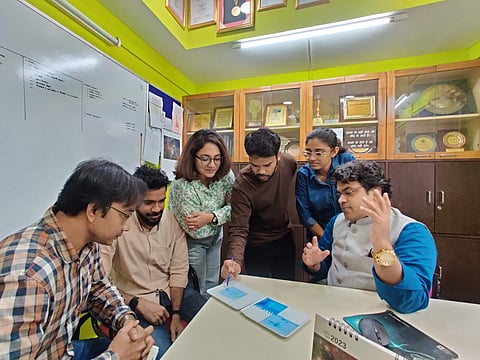

A team of researchers from the Department of Biological Sciences and Bioengineering (BSBE) of the Indian Institute of Technology (IIT) Kanpur has discovered the molecular mechanism of complement receptor activation and signalling, which is a vital part of our immune response. The research was led by Professor Arun K Shukla.
This research provides a clearer understanding of how anaphylatoxin receptors function, which are important drug targets for inflammatory disorders such as arthritis, asthma, sepsis and many more. This study has important implications for novel drug discovery in several human disease conditions, according to a press release by the institute.
The team based their research on the complement system which is a vital part of our immune response, and its dependence on molecules called anaphylatoxins, like C3a and C5a, which interact with specific receptors known as C3aR and C5aR1. They tried to understand the process of working of the receptors, including how they recognise their targets, activate, and control signalling, which has largely remained a mystery.
Additionally, the study also uncovers a natural mechanism where C5a's inflammatory response is reduced through the removal of a specific part of the molecule. It also identifies a peptide that selectively activates C3aR, demonstrating that the receptors can respond differently to various compounds. The study has been published in the international scientific journal, Cell.
Apart from Prof Shukla, the team comprised Manish K Yadav, Jagannath Maharana, and Ramanuj Banerjee, from IIT Kanpur's Department of BSBE, Ravi Yadav, from Molecular and Computational Biology Section, Department of Biological Sciences, University of Southern California and Cornelius Gati, from Molecular and Computational Biology Section, Department of Biological Sciences, University of Southern California.
